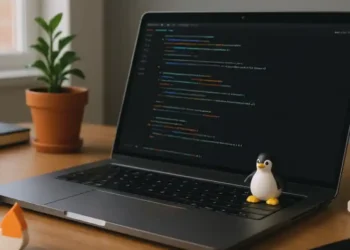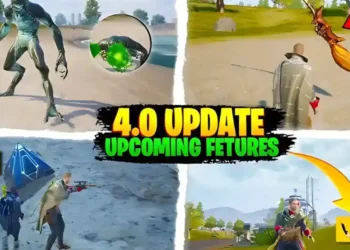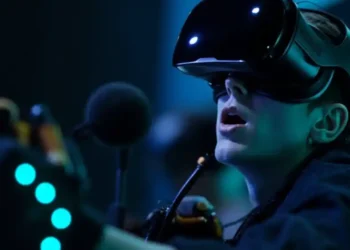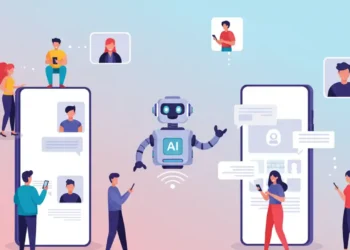So you’re thinking about jumping into the world of tech but you’re not sure where to start. Maybe you’ve heard about six-figure jobs, remote work, or flexible hours, and thought, “I want that!” But at the same time, you might feel overwhelmed by how much there is to learn. Been there, felt that. The good news? You absolutely can figure out how to start a tech career, even if you don’t come from a computer science background. In this guide, I’ll Walk you through everything step by step from picking the right path to landing your first job.
And the best part? No fancy degree or coding bootcamp is required to begin just curiosity and consistency. Let’s dive in and get you moving toward your new tech future.
1. Figure Out Why You Want to Work in Tech
Before anything else, ask yourself: Why tech? Is it the money, the flexibility, the creativity, or the problem-solving?
When I first thought about how to start a tech career, my reason was simple I wanted a job where I could work remotely and build cool stuff. Knowing your “why” will help you stay focused, especially when learning gets tough. Tech isn’t one-size-fits-all. Some people love front-end design; others get excited about data. Be honest with yourself and choose a path that matches your interests, not just trends.
2. Explore the Different Roles in Tech
There’s more to tech than just coding. Here are a few common roles to explore:
Front-end developer (builds what users see)
Back-end developer (builds how things work)
UI/UX designer (designs the user experience)
Data analyst (turns data into insights)
Product manager (manages projects and teams)
QA tester (checks if software works)
When I first started learning about tech careers, I didn’t even know most of these existed. Try watching YouTube day-in-the-life videos or reading job descriptions to see what clicks for you.
Knowing your options helps you pick the right learning path.
3. Start Learning with Free Resources First
Don’t fall into the trap of spending hundreds of dollars before you know what you really want. There are so many free resources to help you start.
Here are some I personally used:
freeCodeCamp.org (great for web dev)
Coursera and edX (for intro courses)
YouTube channels like Programming with Mosh
You might feel overwhelmed at first that’s normal. But start small. Try a 30-minute HTML lesson or watch a beginner-friendly video on how websites work. Every bit counts.
Read More: 10 Best Websites About Technology to Stay Updated in 2025
4. Pick a Tech Path and Stick with It (For Now)
Once you’ve explored a bit, choose one path at least for a few months. Trying to learn everything at once is the fastest way to burn out.
For example, I picked front-end development and focused only on HTML, CSS, and JavaScript. That gave me structure and made progress easier to measure.
Remember, picking one path now doesn’t mean you’re stuck forever. Tech is flexible. You can always pivot later.
5. Build Real Projects (Even Small Ones Count)
Nothing makes things “Click” like building real stuff. When you’re figuring out how to start a tech career, your projects become your resume.
Start with small, fun things:
A personal website
A to-do list app
A budget tracker
A weather app using an API
You don’t need perfection just progress. One thing I tried early on was recreating popular websites like Google’s homepage. It helped me understand layout and styling in a hands-on way.
6. Create a Portfolio to Show What You Can Do
Once you have 2–3 decent projects, start building a portfolio. It can be a simple website with links to your work and a short bio about your journey.
You might feel like “I’m not ready” but trust me, recruiters don’t expect perfection from beginners. They just want to see that you can learn and apply skills.
A clean, honest portfolio goes a long way.
7. Start Networking Early (Even If You’re Shy)
This part scared me the most at first, but it changed everything. Join free tech communities on:
Twitter/X
LinkedIn
Reddit (r/learn programming, r/career questions)
Discord servers for coding newbies
Just comment, ask questions, or share your learning journey. One of my first freelance gigs came from a guy I met on Twitter by just replying to a thread.
Don’t be afraid to ask for help or connect with others. People do want to support you.
8. Apply for Internships, Freelance Gigs, or Junior Roles
You don’t have to wait until you’re an “expert” to start applying. Apply early and apply often.
One thing I learned the hard way? Getting rejected is part of the process. I applied to 40+ jobs before landing my first paid gig.
Start with:
Freelance platforms like Upwork or Fiverr
Entry-level jobs on LinkedIn, indeed, and Remote OK
Internships (even unpaid ones can build experience)
Getting any real-world experience will speed up your learning like nothing else.
9. Keep Learning and Stay Curious
Tech changes fast. What you learn today might evolve in six months and that’s okay.
The best people in tech never stop learning. Read blogs, watch new tutorials, join live coding sessions, or attend webinars.
For example, after learning web development, I got curious about UI design and started learning Figma. Now I can do both, and clients love that.
The key is to stay curious and open to growth.
10. Be Patient, Stay Consistent, and Believe in Yourself
Let’s be real it won’t be easy every day. There will be days when things don’t make sense, or you feel like you’re behind.
You’re not. You’re learning a whole new world, and that takes time.
Celebrate small wins. Finished your first JavaScript project? That’s huge. Sent your first job application? Amazing. Keep going.
The journey may be slow, but progress is progress. And before you know it, you’ll look back and be shocked at how far you’ve come.
Conclusion: Your Tech Career Starts Now
Starting something new can be scary, especially in a field like tech. But guess what? You’re not behind. You’re right on time. Whether you’re 18 or 38, it’s never too late to figure out how to start a tech career that works for you. You’ve got this. Start small, stay consistent, and surround yourself with people who support your journey. The future isn’t just for coders it’s for creators, builders, and learners like you.
Leave a comment below, share this post, or check out our beginner tech guides for more support!
FAQs: How to start a tech career
Q1: Do I need a computer science degree to work in tech?
Not at all! Many people working in tech today are self-taught or came from bootcamps. What matters most is your skills, projects, and willingness to learn.
Q2: What’s the easiest tech job for beginners?
A great entry point is front-end web development. It’s visual, creative, and beginner friendly. Roles like QA testing, tech support, or UI design are also great places to start.
Q3: How long does it take to start a tech career?
It really depends on your time and commitment. If you learn consistently, build projects, and network, you could land a job or freelance role in 6–12 months.
















Discussion about this post